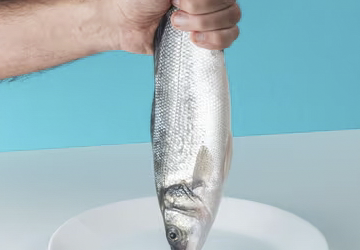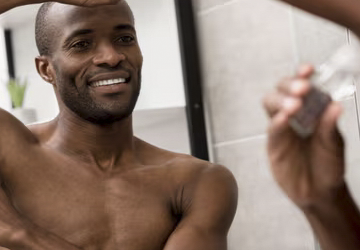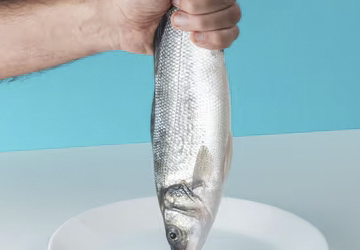Bizarre laws and strange cases: 10 unexpected facts about being a lawyer
Defendants in a court of law don’t always need to be human. In 2010, Swiss lawyer Antoine Goetschel acted in court on behalf of a dead pike, which had “suffered excessively” after an angler took 10 minutes to land the fish when it was snared on his hook (the fisherman was subsequently acquitted). Elsewhere, British environmental lawyer James Thornton has filed lawsuits against governments and corporations on behalf of his only client: planet Earth. His successes include forcing the British government to publish tough new plans to immediately tackle air pollution.

2 Barristers rarely shake hands with each other
And they don’t fist bump either. This aversion to hand contact is a centuries-old legal custom. Its origin myth is hazy: one theory suggests it stems from our swashbuckling, duel-adjacent past when shaking hands was a way for gentlemen to show they weren’t secretly concealing a sword or dagger. Because barristers were supposedly morally superior to ordinary “gentlemen” (ergo the type who would never sneakily carry weapons), handshaking never took off – a tradition that sticks to this day.
3 You may encounter some truly bizarre laws
Did you know that it’s illegal to handle salmon in “suspicious circumstances”? Or you could be fined £200 if you are drunk in a pub in England and Wales (if this concerns you, read section 12 of the 1872 Licensing Act). Other peculiar UK statutes include orders that ban beating carpets on the streets of London, being inebriated while in charge of cattle, and riding in a taxi when suffering from the plague.
4 … but as a lawyer you can challenge some of the more illiberal rules
Working in law can be useful if you want to extinguish everyday discrimination. Take the example of lawyer Tess Gill. Alongside journalist Anna Coote, she took Fleet Street boozer El Vino to court in 1982 due to its puritanical ban on women ordering drinks at the bar (they had to get men to order for them or rely on table service). Despite previously losing their case, the ridiculous edict was eventually overturned by the Court of Appeal. More recently, a group of female lawyers including Cherie Blair QC (alumna of The University of Law) campaigned to force the male-only Garrick club to admit women.
Lawyers have challenged misogynist rules and everyday discrimination. Photograph: gradyreese/Getty Images
5 Lawyers’ wigs are now made from hemp, not just horsehair
The horsehair wig – or peruke – has been a fixture of British courtrooms since the 17th century. Today, many barristers still wear the archaic hairpieces (possibly because funny-looking wigs = gravitas), despite a 2011 ruling stating they were no longer mandatory in the highest court. Wigs are still worn though during criminal cases and appeals. But an alternative to horsehair has arrived on the market: vegan lawyers’ wigs made from hemp. The biodegradable headpieces have been created by barrister Samuel March, who supplies them through his company Hemp & Hemp, which he runs alongside his day job.
6 Dining out 12 times can help qualify you for the bar
Being “called to the bar” (allowed to practise in courts) can be an arduous process involving lots of study, sitting tricky exams and attending a minimum of 12 “qualifying sessions”. These sessions can include lectures and training classes, but attending 12 formal dinners at the four Inns of Court in London also counts towards the final marks. There is a vocational element to these soirees, as trainees chat with lawyers and judges to learn more about the profession. The limitless wine and port at the meals means they’re wildly popular with students too.
7 Mundane things such as dead snails can lead to historic changes in the law
A dead snail ending up in a bottle of ginger beer is hardly headline news. But the decomposing mollusc that May Donoghue found in her drink in Scotland in 1928 went on to change consumer law forever more. After a nasty case of escargot-induced gastroenteritis, Donoghue launched a legal battle against the manufacturers, which resulted in the House of Lords judging that companies owe a duty of care to the consumers of their goods. It paved the way for the negligence laws that protect customers from defective products today.
8 The lawroom is the perfect training ground for a comedic career
Whether it’s trying to win over a stone-faced jury or a crowd of hecklers at a stand-up night, there are some obvious parallels between being a lawyer and a comedian. Which might explain why so many comedians have law degrees: Rebel Wilson, John Cleese, the late Jerry Springer, Bob Mortimer and Jeff Cohen (Chunk from The Goonies). The litigious world of Hollywood has also prompted some celebrities to start studying law too: see Kim Kardashian who has passed her “baby bar” exam in her quest to become an attorney (and says she hopes to pass her final exams next year).
Graduate jobs: nine ways uni leavers can become more employable
Paid for by The University of Law
Read more
9 The metaverse needs lawyers
It isn’t just gamers, fans of non-fungible tokens and Elon Musk who are set to benefit from AI and the metaverse: these innovations will create job opportunities for lawyers too. As corporations dip their toes into the virtual world, they’ll want to protect their intellectual property rights, patents and trademarks, as well as ensure there are no digital copycats – which will keep their legal teams busy. In coming years, driverless vehicles, cryptocurrencies, the blockchain and green energy innovations will all need regulating, generating more new roles for lawyers in tech.
10 You don’t need to study a law degree if you want to be a lawyer
It’s possible to qualify as a solicitor or barrister with a non-law undergraduate degree (however, a law-related postgraduate qualification will be required). The University of Law – the UK’s largest provider of legal education – offers BA and BSc courses in criminology, business management and policing, which can lay the foundations for a career as a lawyer. You can also study a law degree and not become a lawyer: the research, analysis and critical skills acquired on a law course are a great pathway to working in tech, finance and advertising/PR. Or even politics – as law graduates Barack Obama, Hillary Clinton and Nelson Mandela have shown.
To find out more about The University of Law and the courses on offer, visit the website or go to an open day.



